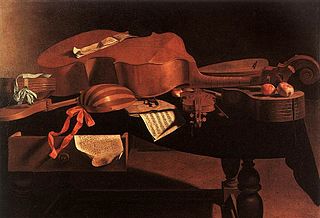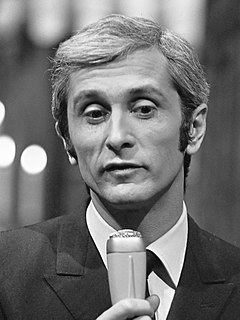Related Research Articles

Édith Piaf was a French singer-songwriter, cabaret performer and film actress noted as France's national chanteuse and one of the country's most widely known international stars.

The University of Caen Normandy is a Public university in Caen, France.

Gilles Vigneault is a Québécois poet, publisher, singer-songwriter, and Quebec nationalist and sovereigntist. Two of his songs are considered by many to be Quebec's unofficial anthems: "Mon pays" and "Gens du pays", and his line Mon pays ce n'est pas un pays, c'est l'hiver became a proverb in Quebec. Vigneault is a Grand Officer of the National Order of Quebec, Knight of the Legion of Honour, and Officer of the Ordre des Arts et des Lettres.

Antoine Busnois was a French composer and poet of the early Renaissance Burgundian School. While also noted as a composer of motets and other sacred music, he was one of the most renowned 15th-century composers of secular chansons. He was the leading figure of the late Burgundian school after the death of Guillaume Dufay.
Clément Janequin was a French composer of the Renaissance. He was one of the most famous composers of popular chansons of the entire Renaissance, and along with Claudin de Sermisy, was hugely influential in the development of the Parisian chanson, especially the programmatic type. The wide spread of his fame was made possible by the concurrent development of music printing.

Guillaume Costeley [pronounced Cotelay](1530, possibly 1531 – 28 January 1606) was a French composer of the Renaissance. He was the court organist to Charles IX of France and famous for his numerous chansons, which were representative of the late development of the form; his work in this regard was part of the early development of the style known as musique mesurée. He was also one of very few 16th century French composers of music for keyboard. In addition, he was a founding member of the Académie de Poésie et de Musique along with poet Jean-Antoine de Baïf, and he was one of the earliest composers to experiment with microtonal composition.
Nicolas de La Grotte was a French composer and keyboard player of the Renaissance. He was well known as a performer on the organ and on the spinet, as well as a composer of chansons; in addition he was one of very few French composers of the 16th century with a surviving composition written specifically for the keyboard.

Les Arts Florissants is a Baroque musical ensemble in residence at the Théâtre de Caen in Caen, France. The organization was founded by conductor William Christie in 1979. The ensemble derives its name from the 1685 opera Les Arts florissants by Marc-Antoine Charpentier. The organization consists of a chamber orchestra of period instruments and a small vocal ensemble. Current notable members include soprano Danielle de Niese and tenor Paul Agnew, who has served as assistant conductor since 2007. Jonathan Cohen is also on the conducting staff; Christie remains the organization's Artistic Director.
Nicolas Millot was a French composer of the late Renaissance, mainly of chansons. He was also a singer in the French royal chapel, which he served in various capacities for about thirty years. After Claude Goudimel, Guillaume Costeley, and Nicolas de La Grotte, he was one of the leading composers of chansons in France in the 1560s.
Guillaume de Dole is an Old French narrative romance by Jean Renart. Composed in the early 13th century, the poem is 5,656 lines long and is especially notable for the large number of chansons it contains, and for its active female protagonist. The romance incorporates forty-six chansons ; it is the first extant example in French literature of a text that combines narrative and lyric. Its form was quickly imitated, by authors such as Gerbert de Montreuil, and by the end of the 13th century had become canonical.
Guillaume le Vinier was a cleric and trouvère, one of the most prolific composers in the genre. He has left compositions in all the major subgenres of trouvère poetry: chansons d'amour, jeux-partis, a lai, a descort, a chanson de mal mariée and a ballade. He wrote Marian songs and even an imaginary dialogue with a nightingale. His work can be dated with some precision: the poem "En tous tens" is quoted in the Roman de la violette, which was written around 1225.
Diabolus in Musica is a French medieval music ensemble directed by Antoine Guerber. Guerber studied medieval music under fr:Dominique Vellard at the Centre de Musique Médiévale de Paris and at the Early Music Department of the Conservatoire National Supérieur in Lyon.
The ensemble A Sei Voci was a French vocal group founded in 1977 and which ceased in 2011.

Marcel Amont is a French singer and actor of the 1960s and 1970s. Amont also recorded in Occitan and promoted Bearn culture from the 1950s.
Jehan Chardavoine was a French Renaissance composer mostly active in Paris. He was one of the first known editors of popular chansons, and the author, according to musicologist Julien Tiersot, of "the only volume of monodic songs from the 16th century that has survived to our days."
Robert Maudhuy was a printer and bookseller active in the city of Arras from the 1590s until his death on 19 July 1632. He printed at the sign of the Name of Jesus.
Banalités is a set of five mélodies for voice and piano composed by Francis Poulenc in 1940 on poems by Guillaume Apollinaire (1880–1918).
Pierre Cerveau was a French Baroque composer, born in Anjou and active during the last quarter of the 16th century.
Events from the year 1639 in France
References
- ↑ Revue de la Normandie - Volume 10 - Page 402 Gustave Gouellain, Jean Benoît Désiré Cochet - 1870 "voulons parler de Guillaume Chastillon de la Tour, poète normand qui, non-seulement composait des chansons, mais encore en faisait la musique. Il habitait, en 1590, la ville de Caen. Voulant publier ses œuvres, il profita du moment où le ...